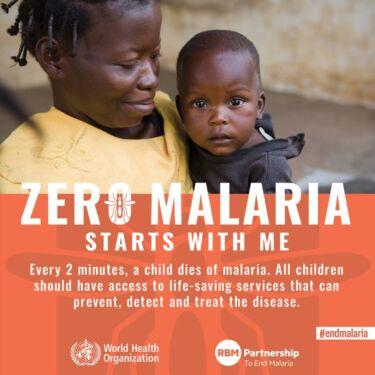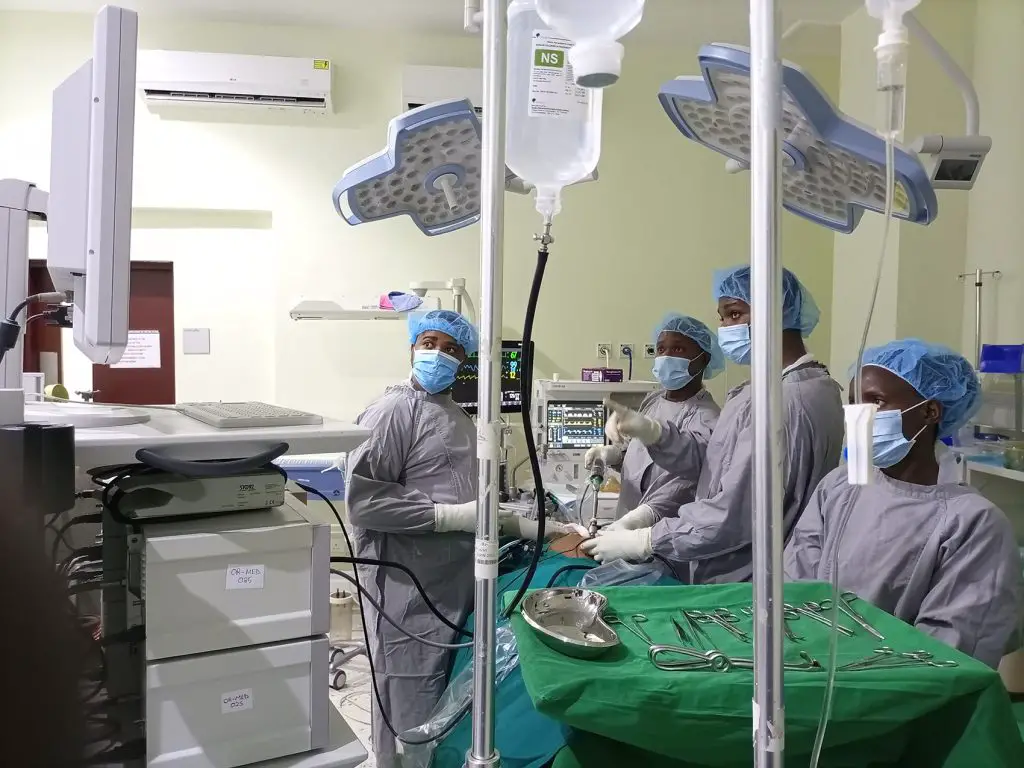- Abu Dhabi radiates optimism as over 300 startups join AIM Congress 2024
- TLcom Capital Raises $154 million in Funding to Boost Its African Growth
- Africa’s $824Bn debt, resource-backed opaque loans slowing growth — AfDB
- LB Investment brings $1.2 trillion portfolio display to AIM Congress spotlight
- AmCham Summit kicks off, setting course for robust future of US-East Africa trade ties
- Why the UN is raising the red flag on the UK-Rwanda asylum treaty
- Portugal’s Galp Energia projects 10 billion barrels in Namibia’s new oil find
- Wärtsilä Energy offers tips on how Africa can navigate energy transition and grid reliability
Browsing: Health in Africa
Kenya has become the first country in Africa, and globally, to launch a national malaria youth army.
In the global arena, it has been a constant battle to eradicate malaria and efforts have been channeled towards this initiative.
Below is a global map and the malaria prevalence in each country.
Countries with zero indigenous cases over at least the past three consecutive years are considered to have eliminated malaria.
In 2019, China and El Salvador reported zero indigenous cases for the third consecutive year and have applied for World Health Organisation (WHO) certification of malaria elimination; also, Iran, Malaysia and Timor Leste reported zero indigenous cases for the second time.
In 2017, the WHO warned that the global response to the malaria menace had reached crossroads. This was a wake-up call from the organisation that more needs to be done to further reduce the spread of the disease.
The …
KENYA’s obstructive stance on innovative tobacco-free oral nicotine products (ONDS) is denying thousands of smokers desperate to quit cigarettes an extraordinary opportunity to have informed choices and save lives. That’s according to international medical experts who addressed the Africa Tobacco Harm Reduction Forum hosted by the Campaign for Safer Alternatives (CASA). “By lagging behind the rest of the world in its stance on tobacco harm reduction (THR), the Kenyan government is blocking the escape from tobacco-related disease and death for 30,000 smokers a year, with no chance of reprieve,” CASA Chairman Joseph Magero told the webinar. “Kenya’s ongoing ‘quit or die’ tobacco control policy ignores the reality that too many smokers find it impossible to quit, even when they want to. Reduced harm products such as e-cigarettes and oral nicotine pouches give them a much safer alternative, a route away from cigarettes and a better chance of a smoke-free future.”…
My July op-ed focused on the increased M&A activities in Africa under Covid-19. Network International announced the acquisition of Africa’s leading online commerce platform, DPO for $288M on 28th July 2020, confirming my analysis that we are going to see more M&A activities going forward.”
According to Keet van Zyl, Managing Partner of Knife Capital (which turned ten last week), who managed Mark Shuttleworth’s ‘Here Be Dragons’ Fund – this is likely the largest tech acquisition in Africa since Shuttleworth sold Thawte to Verisign for $575m in 1999″. SoftBank, which had a $16.5B loss in Q1, returned to a $12B net profit in Q2, courtesy of the merger and partial sale of its stake in Sprint to T-Mobile, as well as a recovery in its $100B vision fund portfolio. This means global M&A is also picking steam in the “valley of coronavirus” as Masayoshi Son put it.
Under COVID-19, …
With more than 11 million confirmed cases and over 530,000 deaths globally, the COVID-19 pandemic continues to have a devastating impact around the world. While many countries continue to grapple with the ongoing surge of new cases, the pandemic has offered the opportunity to reflect on the current achievements and challenges of our healthcare systems.
For one, the novel coronavirus has created an unprecedented disruption for healthcare systems, which have had to balance between maintaining ongoing operations, scaling-up infectious disease programmes, supporting healthcare workers, and managing financial stress while supporting their communities. At an institutional level, the pandemic has forced our hospitals, clinics and other health institutions to quickly scale up their clinical, facility and support protocols to provide efficient and meaningful care to those in critical need.
But for health institutions, like Aga Khan Health Services (AKHS), the concept of pandemic response planning is not only built into our …
When we speak of inclusivity in healthcare, cleft lip and palate surgery is often considered a footnote in the priorities given to healthcare financing. Around the world, many children with clefts live in isolation, making it difficult to make friends and go to school, but more importantly, have difficulty eating, breathing, and speaking. As we seek to achieve Universal Health Coverage, the long-term benefit of treating a single cleft at an early stage can bring in as much as $50,000 to the economy. This economic benefit therefore deserves to be considered a priority as governments address paediatric surgical care.
The Fourth meeting of the Global Initiative for Children’s Surgery (GICS IV) which took place in Johannesburg from 17th-18th January 2019, brought together providers and implementers of surgical services for children, along with health, advocacy, and policy experts. Participants discussed the current state of surgical care for children …






